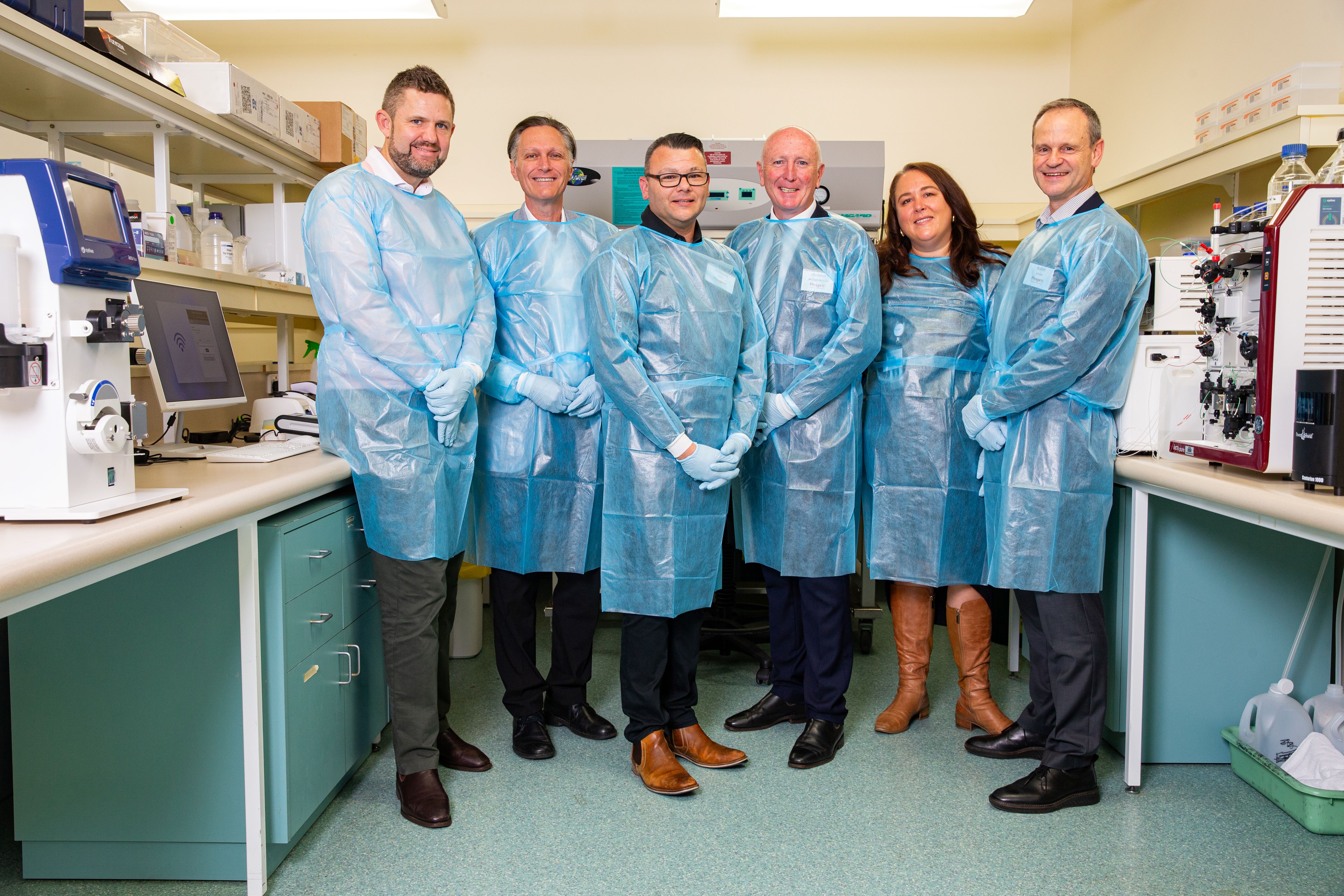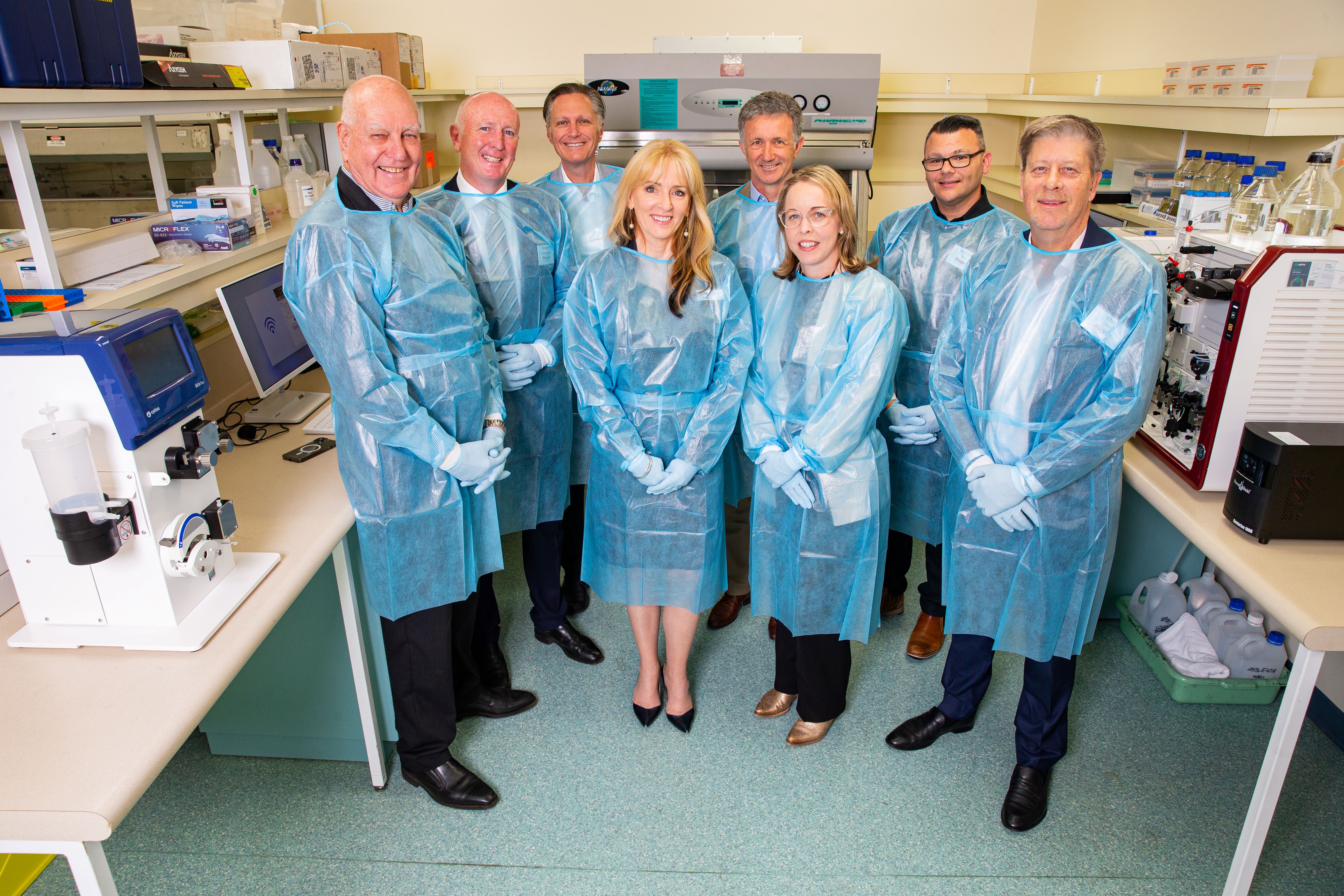
Patients battling antibiotic-resistant superbugs will soon have access to life-saving WA-made therapies that could help treat lung, skin and ear infections as well as bacterial infections like Golden Staph.
Western Australia's inaugural phage manufacturing facility – spearheaded by a team at the Wal-yan Respiratory Research Centre at The Kids Research Institute Australia – was officially opened today by Medical Research Minister Stephen Dawson.
The Phage WA manufacturing facility represents a crucial step toward making phage therapy a clinical reality for West Australians facing antibiotic-resistant bacterial infections.
Bacteriophages, or 'phages,' are ‘friendly’ viruses naturally present in the environment, including waterways and soil, which selectively target and eliminate antibiotic-resistant bacteria – offering a potential alternative to traditional treatment therapies.
In phage therapy, patients are treated using specific phages matched to their bacterial infection from a phage library generated by the research team. Once identified as suitable matches, the phages undergo rigorous purifying and sterilising processes to ensure their safe use in humans.
Associate Professor Anthony Kicic, Scientific Lead of Phage WA and a researcher at the Wal-yan Centre – a powerhouse partnership between The Kids Research Institute Australia, Perth Children's Hospital Foundation, and Perth Children's Hospital – and the Curtin School of Population Health, said the manufacturing facility's opening was the next key step in bringing patients closer to faster and more effective phage treatments.
“Our team at the Wal-yan Centre has spent the past five years creating a large library of phage viruses and matching them with the various strains of bacteria that cause serious infections, to find the best treatment to destroy them and clear infection,” Associate Professor Kicic said.
“Last year, nationwide ethics approval for compassionate use of phages was granted, offering new hope to patients suffering from chronic, recurrent infections that no longer respond to antibiotic treatment.
“We were also successful in securing WA and federal government funding to initiate a manufacturing facility and a translational trial program for patients with antibiotic-resistant lung infections.”
The opening of the cutting-edge facility means the team can now develop safe phage treatments for critically ill patients right here in WA.
“While small-scale phage facilities exist in Sydney and Melbourne, they will not be able to meet national demands including WA patients within practical timelines,” Associate Professor Kicic said.
“The establishment of a WA facility is a monumental step toward delivering faster phage treatments to patients in need not only here but also around Australia and overseas."
Medical Research Minister Stephen Dawson said the opening of this remarkable new medical facility is another example of the Cook Government supporting cutting edge medical research through the highly successful Future Health Research and Innovation (FHRI) Fund.
“We’re totally committed to investing in local researchers and supporting them to pursue their innovative world-leading medical research projects that can save lives here in WA and around the world,” Minister Dawson said.
“This is another exciting day for medical research in WA with the State’s first phage facility now officially open for business, ready to help WA patients get access to these lifesaving alternative therapies.”
At the Phage WA manufacturing facility, phages will be manufactured according to the Therapeutic Goods Administration Good Manufacturing Practice (GMP) standards, which ensures that therapeutic goods are of high quality.
Phage therapy holds remarkable potential for treating antibiotic resistant lung infections caused by pseudomonas and other prevalent bacterial infections like Golden Staph, skin and ear infections. It can also be a valuable tool in surgical settings where antibiotics are becoming less effective due to bacterial resistance.
Phage therapies have a proven track record of success, curing infections and saving lives in Australia and around the world.
Phage therapy is not new: it was employed until a century ago but fell out of use when antibiotics gained prominence. However, the lack of new antibiotics since 1987 has heightened the urgency for alternative treatments to combat antimicrobial resistance (AMR) – recognised by the World Health Organization as one of the world’s most pressing health concerns, with more than 10 million annual deaths projected within the next 25 years if nothing is done. Given this escalating global concern, phage therapy research is gaining momentum as a promising complement or substitute for traditional antibiotics.
This monumental achievement has been made possible through funding from the Federal Government, the Western Australian Government, Conquer Cystic Fibrosis, Cystic Fibrosis WA, Perpetual’s Impact Philanthropy Program, the Rothwell Family Foundation, the Stan Perron Charitable Foundation, and Therapeutic Innovation Australia, who have played a vital role in supporting this critical work to make phage therapy a reality in Western Australia.
Learn more about Phage WA here.

Photo captions:
Top photo:
Alex Harper (Chief Development Officer at Perth Children’s Hospital Foundation),Professor Jonathan Carapetis (Executive Director of The Kids Research Institute Australia), Associate Professor Anthony Kicic (Scientific Lead Phage WA at The Kids Research Institute Australia), Stephen Dawson (WA Minister for Medical Research) Alexandra Robertson (Director Research Operations at Perth Children’s Hospital) and Professor André Schultz (Head of Wal-yan Respiratory Research Centre).
Second photo:
John Rothwell (Rothwell Family Foundation), Stephen Dawson (WA Minister for Medical Research), Professor Jonathan Carapetis (Executive Director of The Kids Research Institute Australia), Wendy Endebrock-Brown (Chair of Conquer Cystic Fibrosis), Gervase Chaney (Stan Perron Charitable Foundation), Taryn Barrett (Committee Member of Conquer Cystic Fibrosis), Associate Professor Anthony Kicic (Scientific Lead Phage WA at The Kids Research Institute Australia) and Chris Gale (Allegra Capital).
